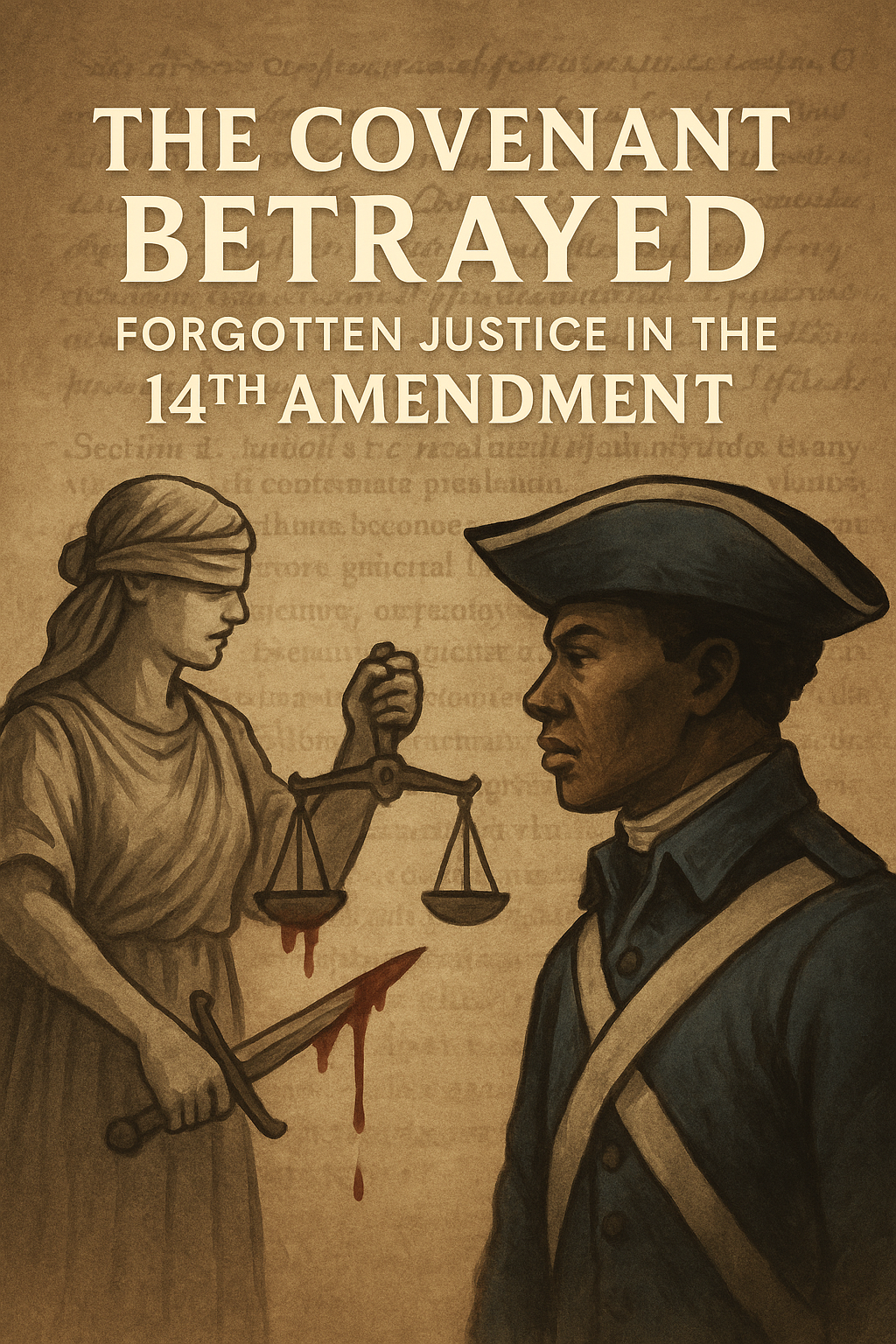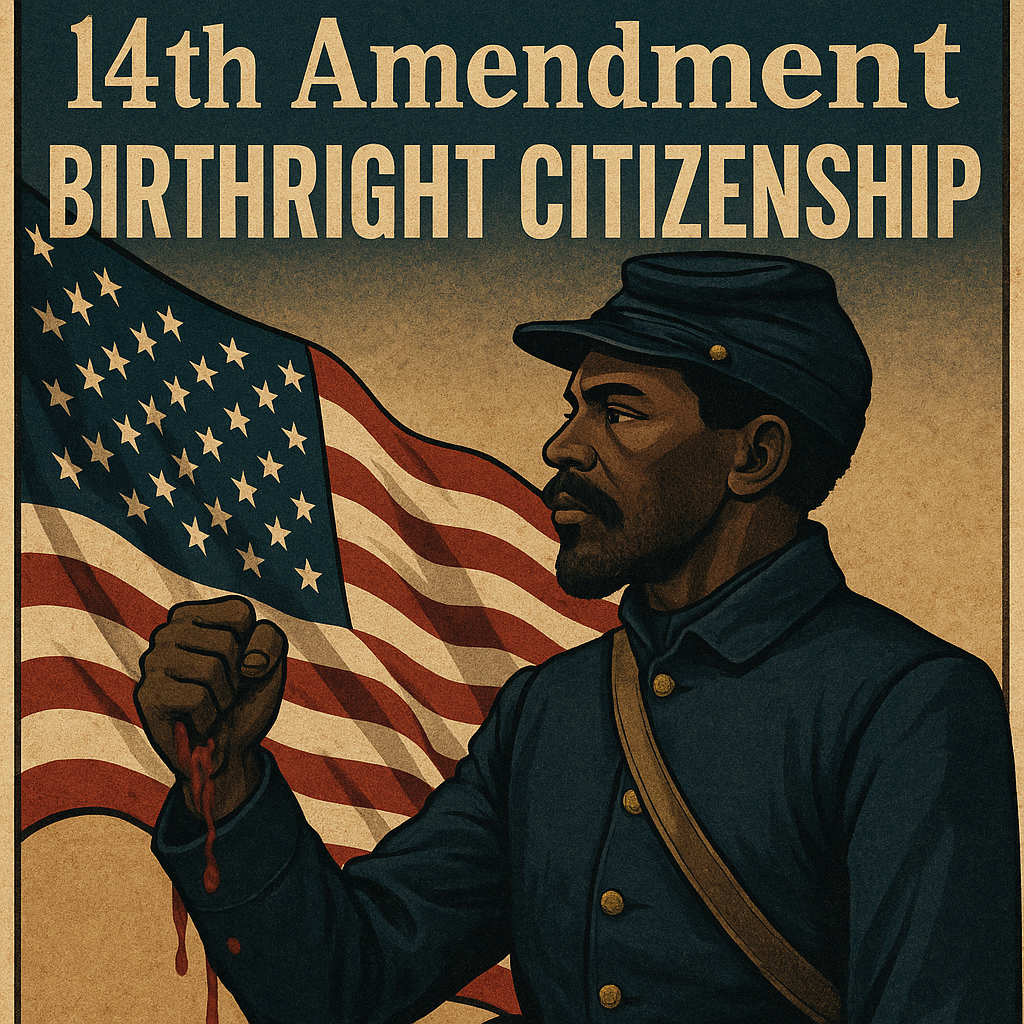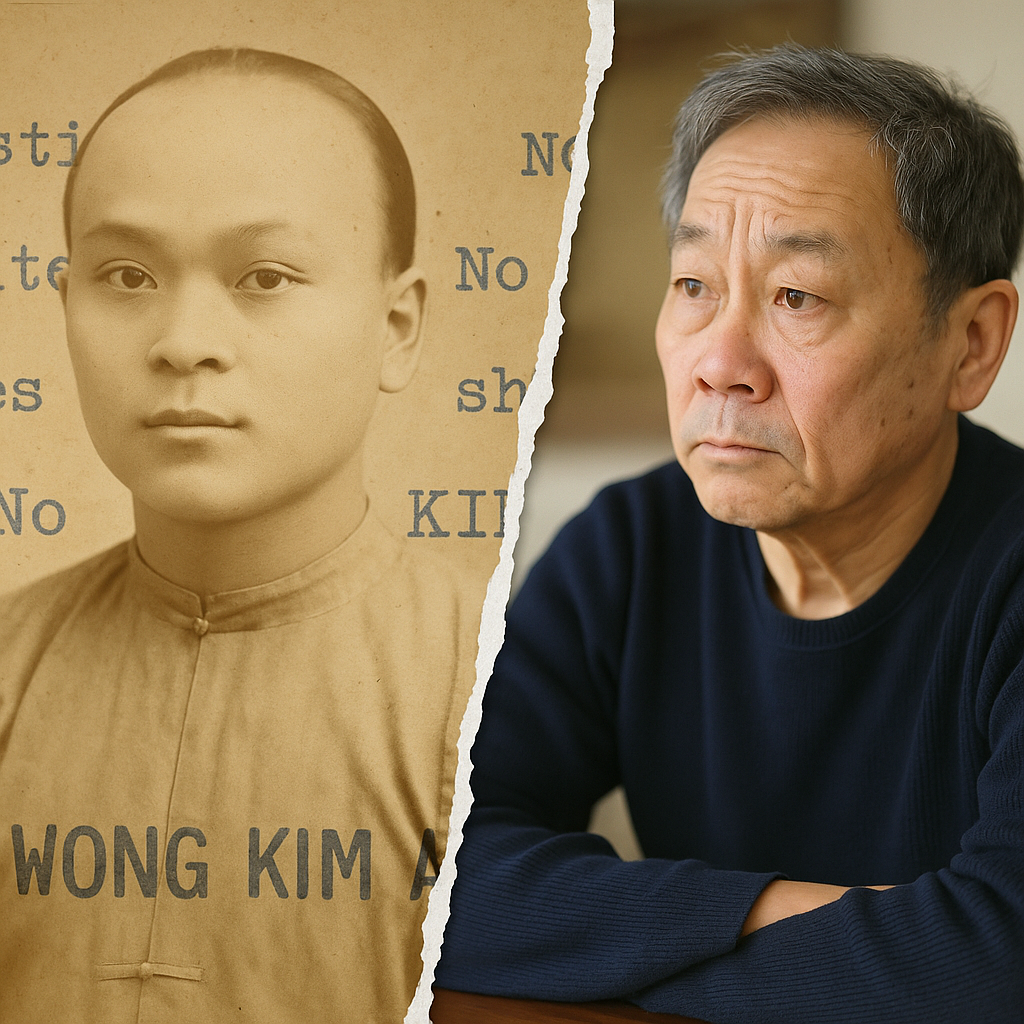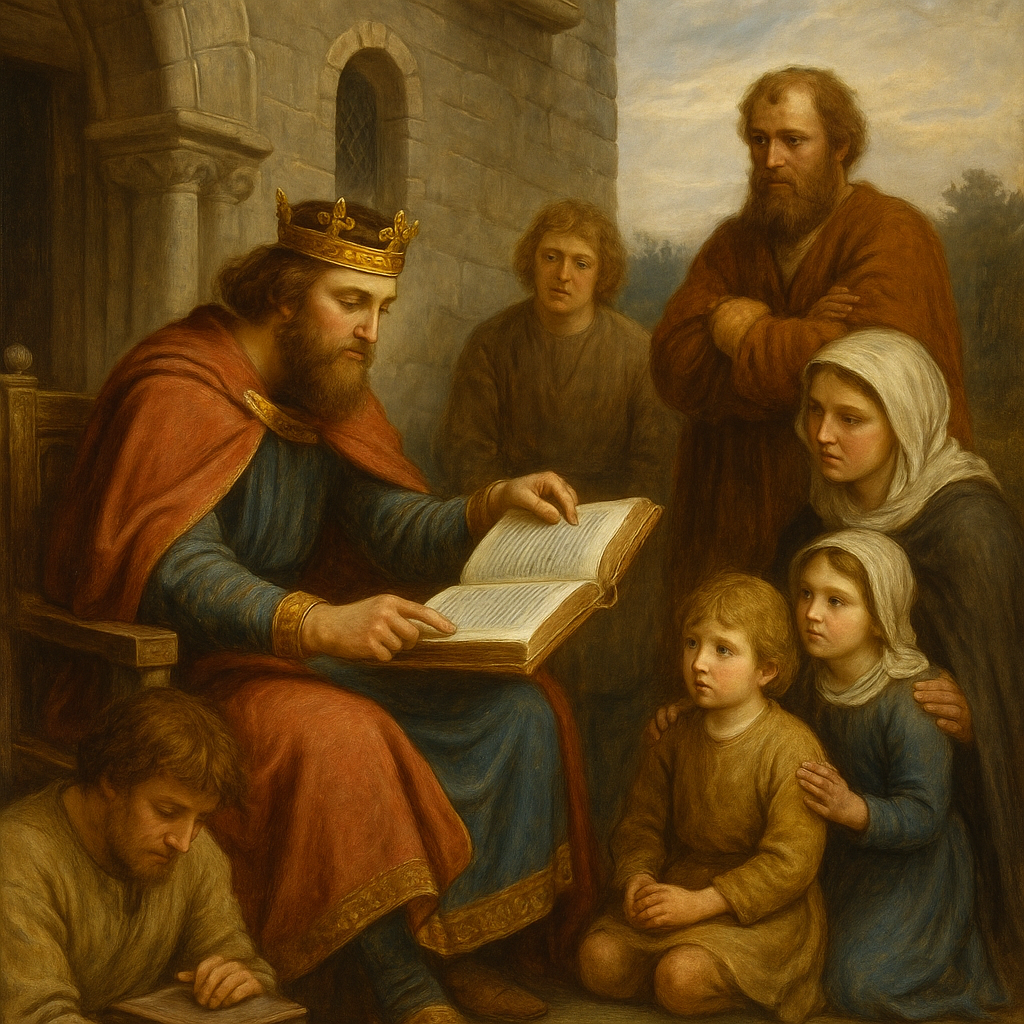Why Betrayal, Justice, and Accountability Still Matter in America
I. The Roots of Betrayal
Betrayal against the United States has often come from those unwilling to face accountability for corruption, greed, or injustice.
During the Civil War, Confederate Democrats turned against the Union to preserve their economic power through slavery. Their allegiance was never to the Constitution or democracy, but to profit and domination.
In contrast, many Republicans of that era stood firm in their loyalty to the nation’s founding ideals -risking everything to secure freedom, citizenship, and equality for Black Americans.
II. The Dred Scott Turning Point
The Dred Scott case (1857) became a moral earthquake in American history.
The decision that denied Black Americans citizenship outraged both Black and white citizens who valued justice.
Remarkably, the Blow family-who once enslaved Dred Scott- later financed his legal fight and purchased his freedom.
Their actions, alongside those of other white allies such as Montgomery Blair, symbolize interracial unity in the pursuit of justice-a truth often erased by modern narratives that seek to divide Americans along racial lines.
III. The Forgotten Provisions of the 14th Amendment
Few Americans know that the 14th Amendment, ratified after the Civil War, contains five sections — not just the famous clause on citizenship and equal protection.
The “buried sections” reveal how the nation sought to hold Confederate leaders accountable and protect the political power of newly freed Black Americans.
Section 2 — Representation and Voting Rights
Penalized any state that denied Black men the right to vote by reducing its representation in Congress.
Section 3 — Disqualification of Confederate Officials
Barred anyone who had engaged in rebellion or given aid to the enemies of the United States from holding public office — unless two-thirds of Congress voted to restore their eligibility.
Section 4 — Public Debt and Confederate Claims
Declared all Confederate debts void and forbade any compensation to former slave owners for freed people — ensuring that the moral and financial consequences of slavery could not be reversed.
Section 5 — Enforcement Power
Granted Congress the authority to pass legislation ensuring that all provisions of the 14th Amendment were upheld — laying the legal groundwork for later civil rights laws.
IV. The Continuing Legacy
These provisions were not simply punitive measures; they represented a moral covenant — a blood-earned promise that America would not allow the betrayers of liberty to regain power.
Today, remembering these sections calls us to renew that covenant, ensuring that justice, equality, and accountability remain at the heart of our democracy.
About This Series
This presentation is part of a civic education series sponsored by BEPARECOZA (The Patriots Bureau of Studies to Reform Congo-Zaire) and its Civic Education and Tutoring Program. The series explores the historical and moral foundations of American citizenship; from the Revolutionary era to the Reconstruction Amendments, through the lens of Black American experience. Its goal is to foster historical literacy, civic engagement, and intergenerational awareness of the sacred covenant between freedom, education, and democracy.
God Bless You and God Bless the United States of America!
The Blood Covenant of Freedom
Historical Context of Blood Covenants
A blood covenant is among the oldest forms of binding agreement in human history; older than written law itself. In ancient cultures (Hebrew, African, and Greco-Roman alike), covenants sealed in blood symbolized total, unbreakable allegiance between two parties.
1. Ancient and Biblical Context
In the Hebrew tradition, a blood covenant represented a sacred contract witnessed by God - not merely a transaction but a merging of destinies.
Breaking such a covenant was not only a legal violation but a moral betrayal-a rejection of divine order.
The shedding of blood symbolized the seriousness of life pledged; both parties were now bound by shared responsibility and mutual accountability.
2. African and Global Parallels
In many African societies, including Bantu traditions, a blood oath or covenant represented a spiritual bond between clans, tribes, or nations - a promise that life itself guaranteed the agreement.
Similarly, in Greco-Roman law, sacramentum (a sworn oath) bound soldiers and citizens to their republic with sacred accountability.
In all these forms, blood symbolized truth, loyalty, and life itself. A covenant bound not just individuals but their descendants—turning it into an intergenerational moral contract.
~~~~~~~~~~~~~~~~~~~~~~~~~~~~~~~~~~~~~~
II. Moral Significance in American History
The United States’ founding ideals-especially those embedded in the Reconstruction Amendments (13th, 14th, and 15th)-can rightly be understood as a blood covenant in the civic and moral sense.
1. The Civil War as a Covenant Moment
Over 600,000 lives were lost in the Civil War, primarily to decide whether the principles of freedom and equality would remain theory or become law.
The 13th, 14th, and 15th Amendments were written and ratified in the blood of that war.
These amendments were not mere legislation-they were sacred vows between the government and the freed people, promising liberty, protection, and equal participation in the Republic.
2. The Moral Contract with Black Americans
The 14th Amendment, in particular, was a covenant that Black Americans would never again be denied citizenship, protection, or opportunity within the nation they built.
To violate that covenant today-by ignoring systemic inequities or denying funding to Black-led educational initiatives-is not just administrative neglect.
It is a moral breach, a betrayal of the dead, and a denial of the covenant that reconstituted America after slavery.
~~~~~~~~~~~~~~~~~~~~~~~~~~~~~~~~~~~~~~
III. Legal and Philosophical Dimensions
1. The Legal Nature of Covenants
In law, a covenant is a binding agreement enforceable by duty-distinct from a mere promise because it presumes moral obligation beyond self-interest.
The Reconstruction Amendments (13th–15th) form the legal covenant between the United States and its Black citizens.
When the state denies equitable protection or access to educational opportunity, it violates that legal covenant by failing its duty of equal protection and good faith.
2. The Constitutional Blood Covenant
The Constitution, through the Fourteenth Amendment, transformed moral sacrifice into legal obligation.
Thus, every public institution-especially those funded by taxpayers-is morally and legally bound to honor the descendants of that sacrifice by ensuring the rights promised in that covenant are materially upheld
IV. The Modern Violation and Its Consequences
1. How It’s Being Violated
Denial of funding for Black-led educational programs represents a continuation of the same exclusionary logic that the 14th Amendment was written to end.
It signals that the covenant has been forgotten or selectively applied, favoring those who did not shed blood to form it.
2. Moral Consequences
A nation that breaks its own blood covenant with its people suffers a crisis of legitimacy.
The erosion of this moral foundation breeds civic cynicism, distrust in institutions, and the loss of national integrity.
As Dr. King warned, “America has defaulted on a promissory note.” A covenant broken is a promise unpaid-and justice delayed becomes justice denied.
~~~~~~~~~~~~~~~~~~~~~~~~~~~~~~~~~~~~
About This Series
This presentation is part of a civic education series sponsored by BEPARECOZA (The Patriots Bureau of Studies to Reform Congo-Zaire) and its Civic Education and Tutoring Program. The series explores the historical and moral foundations of American citizenship; from the Revolutionary era to the Reconstruction Amendments, through the lens of Black American experience. Its goal is to foster historical literacy, civic engagement, and intergenerational awareness of the sacred covenant between freedom, education, and democracy.
God Bless You and God Bless the United States of America!
1. Crispus Attucks (c. 1723–1770)
Often called the first martyr of the American Revolution.
A free Black man of African and Native ancestry, killed in the Boston Massacre (1770).
His death symbolized the first shedding of blood in the struggle for American freedom -a literal beginning of the “blood covenant” between Black sacrifice and American liberty.
Even before independence, Attucks embodied the paradox of a people dying for a freedom not yet granted to them.
~~~~~~~~~~~~~~~~~~~~~~~~~~~~~~~~~~~~~~
2. Prince Estabrook (c. 1741–1830)
An enslaved man who fought with the Lexington Minutemen on April 19, 1775, the first battle of the war.
Wounded in the opening clash at Lexington and Concord.
Later freed, his name was recorded among the early patriots — proof that Black Americans fought at the nation’s birth.
~~~~~~~~~~~~~~~~~~~~~~~~~~~~~~~~~~~~~~
3. Salem Poor (c. 1747–1802)
Fought heroically at the Battle of Bunker Hill (1775).
Fourteen officers petitioned the Massachusetts legislature commending his bravery, calling him a “gallant and distinguished” soldier.
His valor directly influenced the Continental Army’s decision to allow Black enlistment.
~~~~~~~~~~~~~~~~~~~~~~~~~~~~~~~~~~~~~~
4. Peter Salem (1750–1816)
Formerly enslaved, he fought at Bunker Hill alongside Salem Poor.
Credited by some with firing the shot that killed British Major John Pitcairn.
Served in several campaigns including Saratoga and Stony Point.
His name symbolizes “Salem” — peace — fought for but denied to his people.
~~~~~~~~~~~~~~~~~~~~~~~~~~~~~~~~~~~~~~
5. Cuffee Wells (dates unknown)
A soldier in the Connecticut Line, fought in several key battles.
His record reflects the thousands of unnamed Black patriots who filled the ranks as laborers, drummers, and infantrymen, often without pay or recognition.
~~~~~~~~~~~~~~~~~~~~~~~~~~~~~~~~~~~~~~
6. Prince Whipple (1750–1796)
Enslaved African brought to New Hampshire.
Fought at the Battle of Saratoga and reputedly accompanied George Washington across the Delaware River (though this detail is debated).
After the war, he was a strong abolitionist, petitioning for the freedom of all enslaved Africans.
~~~~~~~~~~~~~~~~~~~~~~~~~~~~~~~~~~~~~~
7. Oliver Cromwell (1752–1853)
Fought under General Washington in key battles: Trenton, Princeton, Brandywine, Monmouth, and Yorktown.
Received an honorable discharge personally signed by Washington.
Lived to be over 100, still fighting for the recognition and pensions denied to Black veterans.
~~~~~~~~~~~~~~~~~~~~~~~~~~~~~~~~~~~~~~
8. Agrippa Hull (1759–1848)
Served six years as an aide to General Tadeusz Kościuszko, the Polish engineer who designed American fortifications.
Hull’s loyalty impressed Kościuszko so deeply that he left a will to free enslaved Africans in his honor.
Hull became a landowner in Massachusetts, representing the rare few who turned military service into economic independence.
~~~~~~~~~~~~~~~~~~~~~~~~~~~~~~~~~~~~~~
9. Jude Hall (c. 1750s–1820s)
Enlisted in 1775 in the 3rd New Hampshire Regiment, fought at Bunker Hill, Trenton, and Princeton.
Served for eight consecutive years, one of the longest Black service records of the war.
His life story became a local legend — a freed soldier whose sons were later kidnapped and re-enslaved, symbolizing the ongoing betrayal of the covenant.
~~~~~~~~~~~~~~~~~~~~~~~~~~~~~~~~~~~~~~
10. James Armistead Lafayette (c. 1748–1830)
An enslaved man who became a double agent for the Continental Army under the command of the Marquis de Lafayette.
Provided critical intelligence on British movements leading to the victory at Yorktown (1781).
After the war, he was granted his freedom and added “Lafayette” to his name in gratitude.
~~~~~~~~~~~~~~~~~~~~~~~~~~~~~~~~~~~~~~
Symbolic and Spiritual Figures
11. Phillis Wheatley (1753–1784)
The first published African American poet; her writings rallied the moral spirit of the revolution.
Her poem “To His Excellency General Washington” inspired the belief that Black intellect and patriotism were divine gifts, not contradictions.
~~~~~~~~~~~~~~~~~~~~~~~~~~~~~~~~~~~~~~
12. Lemuel Haynes (1753–1833)
Minuteman at the age of 21, later became the first ordained Black minister in America.
His sermons blended revolutionary ideals with Christian theology, declaring that “Liberty is equally precious to the Black as to the white.”
~~~~~~~~~~~~~~~~~~~~~~~~~~~~~~~~~~~~~~
13. Colonel Tye (Titus Cornelius, c. 1753–1780)
Fought on the British side after escaping slavery, commanding the Black Brigade of Loyalist raiders.
While controversial, his role shows how some saw the Crown’s promise of freedom as more reliable than that of the colonies — exposing early hypocrisy in America’s claim to liberty.
About This Series
This presentation is part of a civic education series sponsored by BEPARECOZA (The Patriots Bureau of Studies to Reform Congo-Zaire) and its Civic Education and Tutoring Program. The series explores the historical and moral foundations of American citizenship; from the Revolutionary era to the Reconstruction Amendments, through the lens of Black American experience. Its goal is to foster historical literacy, civic engagement, and intergenerational awareness of the sacred covenant between freedom, education, and democracy.
God Bless You and God Bless the United States of America!
United States vs. Wong Kim Ark
THE COVENANT BETRAYED: THE MISINTERPRETATION OF BIRTHRIGHT CITIZENSHIP AND THE FRAMERS’ INTENT
I. The Amendment of Accountability
After the Civil War, the 13th, 14th, and 15th Amendments were written by Republican lawmakers-John Armor Bingham, Lyman Trumbull, and Thaddeus Stevens-under President Abraham Lincoln to secure freedom, citizenship, and voting rights for foundational Black Americans.
These Amendments represented the legal and moral covenant of America’s rebirth-binding the nation to equality, justice, and accountability.
When Confederate Democrats rebelled, their defeat under the Union cost them political, economic, and moral power.
The 14th Amendment not only abolished slavery but penalized those who betrayed the Constitution:
Section 2 reduced representation for states denying Black men the vote.
Section 3 barred traitors and rebels from office.
Section 4 voided Confederate debts and banned payments to former slaveholders.
Section 5 empowered Congress to enforce these laws.
This structure became the “The Amendment of Accountability” - a permanent safeguard against those seeking to subvert justice or reclaim power lost to freedom’s triumph.
II. The Misinterpretation of Birthright Citizenship
The 1898 Wong Kim Ark case redefined citizenship, introducing jus soli-citizenship by birthplace-into American law. We argue that this was a judicial betrayal:
It ignored the framers’ original intent, who used the phrase “subject to the jurisdiction thereof” to mean full political allegiance, not mere location of birth.
It contradicted the Elk v. Wilkins (1884) ruling, which denied citizenship to Native Americans born on U.S. soil because they owed allegiance to their tribes.
It violated the moral and legal foundation that tied American citizenship to loyalty, not geography.
Unlike the Reconstruction Amendments, Wong Kim Ark was not ratified by Congress or signed by a President. It was a judicial overreach during the Chinese Exclusion Act era, when Chinese nationals were barred from naturalization.
By redefining “jurisdiction,” the court severed America’s citizenship law from its founding covenant — reattaching it to the same British legal doctrine (jus soli) that the Revolution had rejected.
III. The “Scam”: Betrayal of the Founding Covenant
The “scam” is the redefinition of American birthright citizenship-replacing the founders’ allegiance-based model with a soil-based model.
This reinterpretation:
Betrayed the sacrifices of both the Founders and the enslaved ancestors who bled for liberty.
Undermined national sovereignty by opening loopholes exploited through immigration and political manipulation.
Revived the same foreign influences that the Revolution sought to escape.
According to this framework, the betrayal was not just legal- it was moral and spiritual, severing the sacred bond between the American people and their Constitution.
IV. Restoring the Covenant
We are calling for:
Restoring the original intent of birthright citizenship-allegiance, not mere birth location.
Reasserting national sovereignty and resisting globalist distortion of U.S. law.
Educating citizens on the divine and historical significance of the Reconstruction Amendments, written for the descendants of foundational Black Americans.
This movement is not about exclusion-it is about restoration: honoring those who built the nation, protecting its moral inheritance, and exposing the continuity of betrayal from the 19th century to the present day.
Key Takeaway
The covenant of American citizenship was sealed in blood; through the Revolution and Reconstruction alike. To distort that covenant for profit or politics is to betray not only a nation, but a sacred trust.
About This Series
This presentation is part of a civic education series sponsored by BEPARECOZA (The Patriots Bureau of Studies to Reform Congo-Zaire) and its Civic Education and Tutoring Program. The series explores the historical and moral foundations of American citizenship; from the Revolutionary era to the Reconstruction Amendments, through the lens of Black American experience. Its goal is to foster historical literacy, civic engagement, and intergenerational awareness of the sacred covenant between freedom, education, and democracy.
God Bless You and God Bless the United States of America!
The Original Inequality: From a Thousand Years of Anglo Saxon Literacy to Black American Illiteracy Laws
A Timeline of Literacy and Denial
1. When the Anglo-Saxons Became Literate
597 CE: The Anglo-Saxons were converted to Christianity when Augustine of Canterbury arrived from Rome, bringing Latin literacy for church and government use.
871–899 CE: King Alfred the Great promoted vernacular literacy (Old English), spreading reading and writing among common people.
By 900 CE, England had a literate Anglo-Saxon culture.
Functional literacy in England began around 600 CE and was widespread by 900 CE — over 1,100 years ago.
2. When Anti-Literacy Laws Targeted Black Americans
1740 CE: South Carolina codified the first laws prohibiting enslaved Africans from learning to read or write.
1831 CE: After the Nat Turner Rebellion, these laws expanded across the South.
Such laws remained in force until 1865 CE, the end of the Civil War.
The legal denial of literacy for Black Americans began roughly 1,100–1,200 years after the Anglo-Saxons first gained literacy.
Conclusion
By the time chattel slavery began in the Americas, the English had been literate for 700–1,000 years -a span during which literacy had transformed power, faith, and governance for one people, even as literacy itself was criminalized for another.
By the time anti-literacy laws were imposed on Black Americans in the mid-18th to early 19th centuries, English literacy had flourished for over a millennium.
This contrast reveals not merely a gap in education, but the deliberate construction of inequality; where access to knowledge became the foundation of power for one people, and its denial, by law and punishment, ensured the subjugation of another.
Timeline of Literacy and Denial
· Anglo-Saxon (England) Literary Era: Schools and monasteries promoting literacy by the 8th century
· King Alfred’s Literacy Campaign: Around 900 CE, vernacular (Old English) literacy became widespread
· Chattel Slavery Begins: By 1619 CE, the English had already been literate for about 1,000 years
· Anti-Literacy Laws Enacted: Between 1740–1865 CE, laws forbade Black Americans from learning to read or write
→ Denial by statute and punishment
Historical Comparison
· From 600 CE (Christianization and Latin literacy) → 1740 CE (first anti-literacy laws) = ≈ 1,140 years
· From 900 CE (vernacular literacy under King Alfred) → 1740 CE = ≈ 840 years
· From 900 CE → 1619 CE (start of chattel slavery) = ≈ 719 years
About This Series
This presentation is part of a civic education series sponsored by BEPARECOZA (The Patriots Bureau of Studies to Reform Congo-Zaire) and its Civic Education and Tutoring Program. The series explores the historical and moral foundations of American citizenship; from the Revolutionary era to the Reconstruction Amendments, through the lens of Black American experience. Its goal is to foster historical literacy, civic engagement, and intergenerational awareness of the sacred covenant between freedom, education, and democracy.
God Bless You and God Bless the United States of America!






